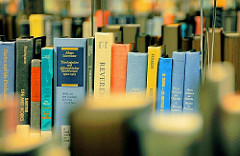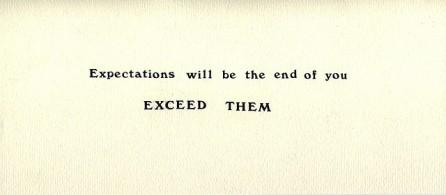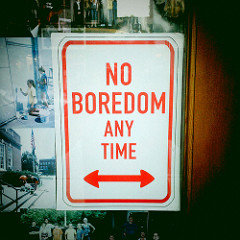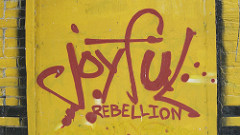When I was a kid, I was a voracious reader. I would have a book with me almost everywhere I went just waiting for the opportunity to crack it open and lose myself in the words once more. I absorbed anything and everything I could whether it be fiction or nonfiction, children’s stories or young adult literature, academic or nonacademic, I read it all.

However, I could not understand why teachers expected me to start spending all of my free time reading books for class or, at the very least, read books that actually mattered. To be fair, my teachers never said that what I was reading was useless, but the implication was nevertheless there. They didn’t want me to hang out with Junie B. Jones or solve mysteries with the Boxcar Children when they felt my capabilities were more suited towards slogging through Dracula or The Brothers Karamazov. I was only a kid, so I didn’t care about stuffy old books that had entirely too much text devoted to things I felt were irrelevant. Who actually needed to know each minute detail about landscape or social hierarchy to understand the story being imparted? Regardless, I powered through those books because that was what was expected of me.

As a result, I became disenchanted with reading. I stopped cracking open any book I could get my hands on and it took me longer to get through the ones that I did pick up. This issue was only compounded when teachers began to enforce the canon on me and my choices. For those of you who don’t know, the canon is made up of the books that we have been told are “classics” and the “genius” authors that everyone should read because they represent a collection of the most important works ever written or something like that. In reality, they are a collection of authors that are an extension of the power dynamic represented by those choosing the canon. To clarify, basically it is a bunch of old, cisgender, heterosexual, white men telling everyone that other old, cisgender, heterosexual, white men are the greatest writers and have written the greatest works and those works should be placed on a pedestal and everyone should study them and never question them.
Anyway, as a teen I could never fully get behind that since I was a young, pansexual/demiromantic woman who had spent 67% of my life at that point living below the federal poverty line. I couldn’t relate to the books I was reading beyond an abstract understanding of the historical social issues being represented, and this limited my passion for those aforementioned canonized books and authors to just bland aestheticism.

This spurred the literary extension of my teenage rebellion where I began to read more and more internet-based fiction, namely fanfiction, in order to step away from the literature that had been imposed on me for so many years. This allowed me to enjoy different points of view and reworkings of book series, movies, and television shows that I had enjoyed as a child and as a teen. My forays into these works also triggered more and more research into my identity and the world I lived in as I became more entrenched in different internet communities.

Therefore, it was only natural that I got into slam poetry and how it was impacting the literary scene. I saw people writing and performing pieces about gender, sexuality, poverty, womanhood, and other topics that I had been denied through the enforcement of the aforementioned canon. Here, at last, were people I could relate to and understand. As such, it can indeed be said that my adolescence represented a transformation in my personal and literary identities.

To sum up, there are five things that categorize my time as an adolescent reader. Number one, people started telling me to read the books that mattered. Number two, they then tried to enforce the canon upon me. Number three, I could not relate to the canon or the books that “mattered”, so I lost my passion for reading. Number four, my love of reading was partially rekindled through the discovery of fanfiction. Number five, the flames were fanned even more through when I found out about slam poetry.
You just had one of the best, most succinct definitions of cannon ever. Kudos!
It is true that the “classics” or “cannon” are by older, white men (mostly) for older, white men (mostly). Why do we force teens to read them then? It seems like the target audience is not a middle school or high school teen in modern America.
I also really like how you shared that your teachers made you feel that what you wanted to read was not important or “good”? What were your favorite books? Do they still appeal to you?
Great post!
LikeLike
My favorite books when I was an adolescent reader were the Nancy Drew stories. They still appeal to me, but I haven’t read them in a while. However, I have played a few of the Nancy Drew games that have been made and found them to be very fun. Thank you for the lovely comment!
LikeLiked by 1 person
Do I remember right that there was a 90s revamp of Nancy Drew?
LikeLike
I don’t know about a 90s revamp, but I remember they made a movie with Julia Roberts’ niece playing the eponymous hero in like 2005 or somewhere around there.
LikeLiked by 1 person
That was not fair to you that you had to lose your love of reading. The canon does need a good looking at in my opinion. Also it is a good thing you were able to refind your love for reading. Honestly reading is so important to life, and helps make us all who we are!
LikeLike
I definitely agree with your statement about the canon. In my opinion, the canon, if there must be one, should represent humanity as it is and not just a small portion of it. Thank you for the great comment!
LikeLike
What an intersting transformation in your reading.
LikeLike
Thank you for the comment!
LikeLike
You make a really important point about the message that teachers and other adults may intentionally or inadvertently convey to kids: the books you love don’t matter. Elementary teacher and “book whisperer” Donalyn Miller talks about the importance of “blessing” the books our students read. They need to hear from us that the books they love DO matter. In fact, in my opinion, that’s the most significant indicator of a book’s value and meaning: it’s a book that the reader loves. I’m not quite sure how teachers got the idea that the most important work we can do is steer kids towards a very narrow set of texts that (mostly) represent a very narrow set of life experiences.
LikeLiked by 1 person